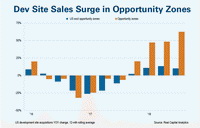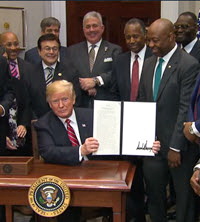affecting the nation’s economy, job creation and the health of commercial real estate markets.
“We look forward to working with President-Elect Trump and the 115th Congress to positively boost job creation, expand the economy, and address the many important national policy issues relating to real estate and the national economy.
Strong real estate markets provide millions of American jobs, improve the well being of our local communities, support the interests of national security and defense, and help sustain the nation’s critical infrastructure in our towns, cities, and states.
The strength of real estate, and the benefits the industry provides to all Americans, depends on fair, consistent, and forward-looking policy at all levels of government. Real estate public policies are non partisan. They should be based on objective economic principles, responsive to changing economic cycles and sensitive to societal demands.
Tax and financial regulatory reform; infrastructure investment; immigration issues; energy policy; and, physical and cyber security each will present opportunities to advance the economy job creation and the stability of U.S. real estate markets.
We are excited to offer our support, expertise and assistance to President-Elect Trump and to the new Congress. We are honored to contribute meaningfully to the strength and prosperity of our nation,” said DeBoer.
About The Real Estate Roundtable






